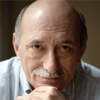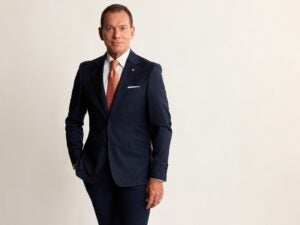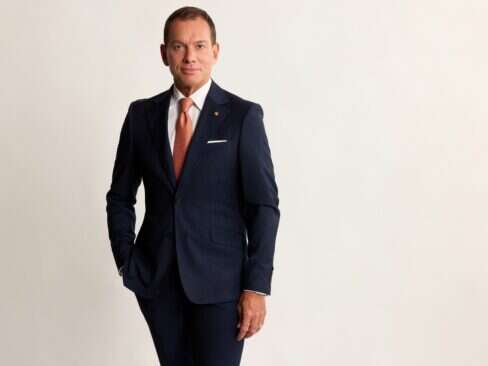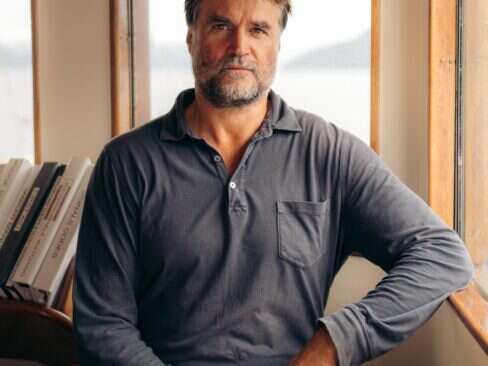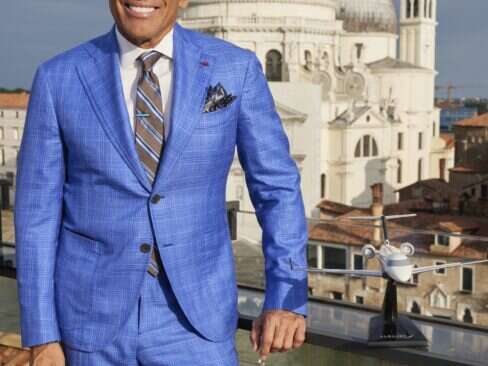
and Alexandra Zoller, U.S. PresidentOfficine Panerai
When luxury veteran Angelo Bonati came to Panerai in 1997 following many years as head of distribution for Cartier in Italy, there was a watch, but no production and no company. After a dozen years under his leadership Panerai is considered one of the most desirable timepiece brands despite its relatively accessible entry price point. Recently Bonati and Panerai U.S. President Alexandra Zoller met with Elite Traveler Editor-in-Chief Douglas Gollan in New York to discuss what is going to be a very busy 2010 and how he is navigating the company through the current storm.
ET: What makes Panerai so special?
Angelo Bonati: There is no easy answer to this question because Panerai is a mix of so many special things that have made it successful. When we introduced the watch to the market, we introduced something new in the shape, new in the contents in the watch and new in the values. These values were not linked to the watch industry, but linked to Italy and Florence so it was the DNA of the watch that made it so special and unique when mixed all together. We were very careful when we bought the brand in 1997. We kept everything standard, we kept the same position, with the same shape, we didn’t try to follow the market because we considered the past our opportunity.
ET: Can you tell us about where the company was when Richemont bought it?
Angelo Bonati: The company didn’t exist. When [Richemont CEO and Executive Chairman] Mr. [Johann] Rupert decided to buy this brand, and he gave us the brand to grow and manage, we had nothing but one watch, the Luminor Marina, and a history that was fragmented. There was an occasional testimonial and the testimonial was Sylvester Stallone in the movie Daylight. And for Stallone, it was not because someone asked him, but because he liked the watch. So when we started, the brand didn’t exist. We continued with our positioning in the high-end sport segment and today we are here.
ET: So tell us about Panerai today.
Angelo Bonati: The watch is distributed in 22 countries, but in some countries there is only one point of sale, because we are very selective. There are a total of 500 points of sale around the world. We have 25 of our own or extended boutiques. In terms of sales, this year will be less than the prior year and less than the next one, but we don’t reveal our production or revenue figures. [According to Richemont’s most recent six-month financial statements, its Specialty Watchmakers including Vacheron Constantin, IWC, Roger Dubuis, Jaeger Le-Coultre, Panerai and others registered sales of 655 million Euros without providing a breakout by brand]. We have 250 employees right now and we expect to grow significantly because we have the policy to develop our in-house movement so we will be increasing the number of watchmakers.
Alexandra Zoller: In the U.S. we currently have two boutiques—one in New York on Madison Avenue that we opened last year, and one in Los Angeles, which was recently renovated. We will also shortly open a new boutique in Boca Raton around April and would like to welcome readers of Elite Traveler to come in.
ET: Have you made any adjustments to take into account the economic turmoil?
Angelo Bonati: The economic downturn was a shock for everybody, but what was important was not to panic. What was important was to identify and link our actions to our strengths and that’s what we did. We didn’t force products in the market, because if you try to move your stock to the stock of the dealers, you don’t solve your problem because the dealers start to discount. We continued to invest in the same way as before in advertising and in opening boutiques. For instance we opened earlier this year a boutique on Madison Avenue. We are sure our strategy is the right one, so we might sell less, but when times change we know our business will still be on the right path.
ET: What is on the agenda for 2010?
Angelo Bonati: We will present at SIHH [The Salon International de la Haute Horlogerie trade show in Geneva in January] two new calibres that will allow us new development. We will continue to qualify our distribution and open new Panerai boutiques, plus some other projects we can’t talk about yet. The new boutiques will include Shanghai, Hong Kong, Macau just opened, Geneva just opened, two in the Middle East, Paris and London, and as we said Boca Raton in April.
ET: And when you are not working, do you have any hobbies or passions?
Angelo Bonati: That’s a problem. I am always working (laughs). I enjoy sailing. It is my favorite hobby—either sailing or working on my boat. For the company we bought a boat, a 22-meter Bermudian ketch built in 1936 by the legendary Scottish boatyard Fife. We are restoring and finishing her, and at the end of January she should be ready. It is a boat we found basically destroyed in English Harbour in Antigua and I saw the opportunity for Panerai to invest and restore it. It has taken three years, but we have recovered a part of sailing history—it was one of the most important boats of the past half century. We will use the boat for PR activities and the regattas we sponsor such as the Panerai Social, and we can also use it for social causes such as for schools.
ET: So who is the Panerai customer?
Angelo Bonati: It seems easy to talk about the Panerai customer, but he is not well defined. It can be a rich entrepreneur or a normal person on the street, and even the social standing and the culture is different for various customers. In terms of age we count people from 23 or 24 to 70. Two years ago I met a couple of older gentlemen in a restaurant in Geneva and one was wearing a Panerai watch, so I went over to the man wearing it, and I asked why he had a Panerai. He said it is so big and the dial is clean so it is easy to read; so it just shows the variances. Of course we also have a lot of collectors because of the rarity of the product. So it is not easy to identify a specific target. He is someone who wants something exclusive, that is not common, that is not fashion.
ET: Have you thought about brand extensions?
Angelo Bonati: Panerai is full of opportunities but we don’t want to pursue these. We want to keep the brand pure. The brand has such strong passion. If you diversify, you pollute the brand and you cannot play the role of being exclusive if you do pants and shirts and pens. When I started to open the first boutiques, one colleague asked what products we would have. His point was that he thought we needed more products. So you can choose to sell one each of 100 references or 100 of one reference.
ET: What are the challenges of overseeing a global brand and how would you describe your management style?
Angelo Bonati: My poor assistant goes crazy every day. When you play a role you are inside the machine, and you don’t realize time is running fast, so you have to be organized and run fast too. We have great collaborators so it is not just me. It is a team. In the headquarters, the factory, the subsidiaries, we work together, we fight, we get sad together, but I always want a relationship linked to the mutual goal and passion for the brand. One person cannot do everything so I need to have a team.
ET: In all your travels, do you have any favorite hotels?
Angelo Bonati: My favorite hotels are in Asia because the service level there is just fantastic. It is paradise. I like the Four Seasons and Peninsula in Hong Kong, the Park Hyatt in Tokyo, and my favorite is the Sukhothai in Bangkok. When I stay there I am working, but when you walk in it still makes you feel relaxed.





